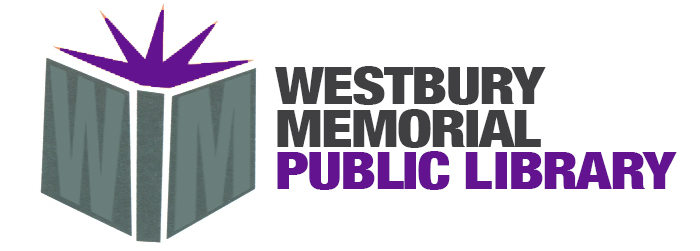Librarian’s Pick: Three Woman – Lisa Taddeo
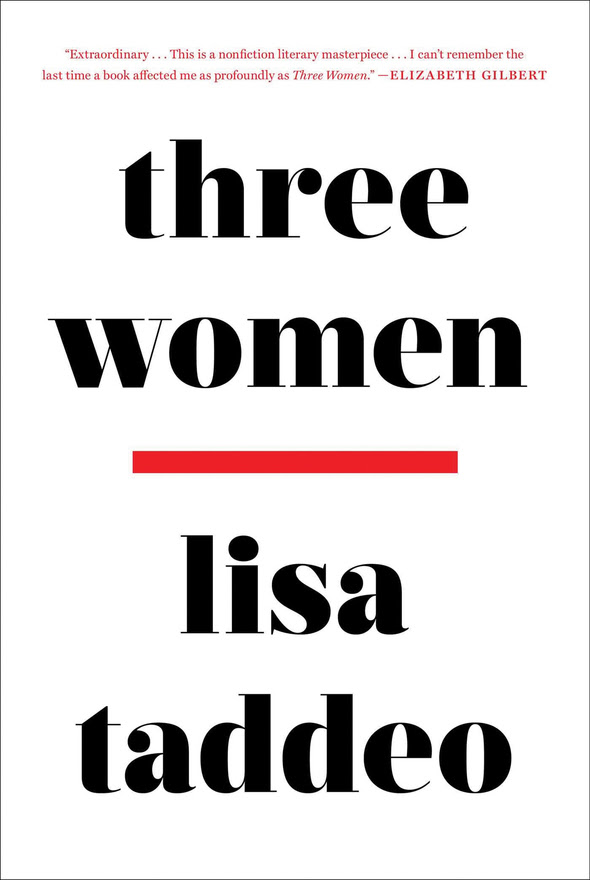 “Lisa Taddeo opens Three Women, her compelling debut, with stories about her mother: the beginnings of her mother’s life as a woman, with all the complexities that accompany the teenage years, when society views women as reaching the height of their sexual power. She closes with her mother as well, this time describing the end of her life as Taddeo cared for her in the hospital. While this may seem like a strange decision for a book that concerns itself with female desire, it’s quickly apparent to even the casual reader that Taddeo doesn’t shy away from the unspoken, the uncomfortable and the shadow sides of sexuality. This is by necessity a ruthless book as it explores the half-concealed aspects of not only the female sex life but also the inner and secret lives of women.
“Lisa Taddeo opens Three Women, her compelling debut, with stories about her mother: the beginnings of her mother’s life as a woman, with all the complexities that accompany the teenage years, when society views women as reaching the height of their sexual power. She closes with her mother as well, this time describing the end of her life as Taddeo cared for her in the hospital. While this may seem like a strange decision for a book that concerns itself with female desire, it’s quickly apparent to even the casual reader that Taddeo doesn’t shy away from the unspoken, the uncomfortable and the shadow sides of sexuality. This is by necessity a ruthless book as it explores the half-concealed aspects of not only the female sex life but also the inner and secret lives of women.
The three women in question cut across lines of class, age and experience. Maggie’s story begins as a teen-ager in a working-class family in North Dakota, receiving provocative and confusing texts from an English teacher that build alarmingly and irresistibly. Lina is an Indiana housewife, firmly middle-class, unfulfilled and anxiety-ridden amid toddlers and a sexless marriage, when she reconnects with an old boyfriend over Facebook. Enigmatic Sloane is comfortably upper-class and considers herself highly in control of her sexual agency, until difficult memories surface, consequences arise, and she begins to question the line between male desire and her own—whether she is subject or object.
Three Women is merciless, impossible to put down and so revealing as to be uncomfortable. As the women share themselves, you find yourself reflected. It’s a multifaceted work that changes as you turn it, casting light in unexpected corners that you never before considered—and had perhaps even been guarding against.
Librarain’s Pick: What We Talk About When We Talk About Book – Leah Price
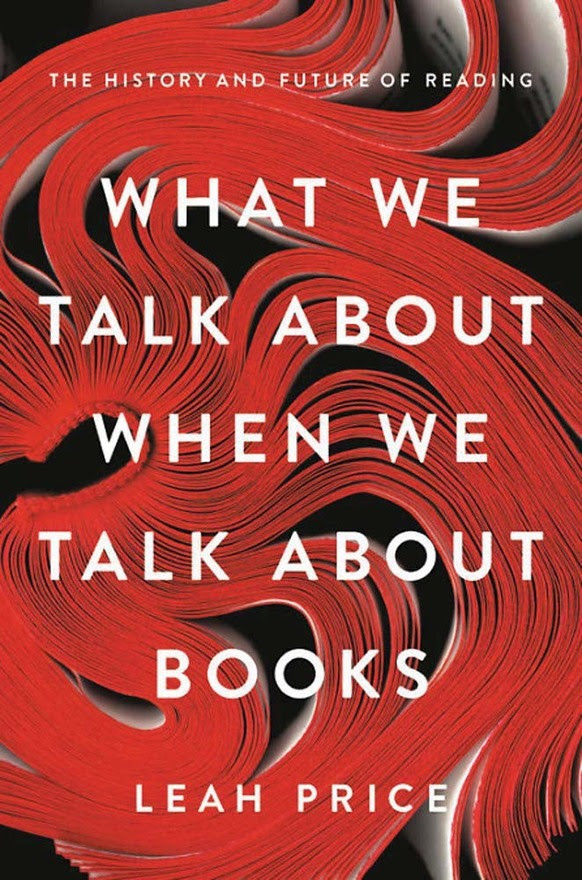 In her professional capacity, Price has spent plenty of time among the dusty, forgotten vestiges of the reading past. She’s scrutinized the marginalia in antique school primers and the fingerprint stains on old library books. Studying books can make it hard to venerate texts, Price writes. She’s discovered, for instance, that in old copies of Samuel Richardson’s 18th-century doorstop of a novel Clarissa, the sex scenes are often well-thumbed, while long passages describing pastoral landscapes are in pristine condition. This would suggest that our romanticized reader of the past was just as prone to skimming for the “good bits”—21st-century eBooks just make the process a little easier.
In her professional capacity, Price has spent plenty of time among the dusty, forgotten vestiges of the reading past. She’s scrutinized the marginalia in antique school primers and the fingerprint stains on old library books. Studying books can make it hard to venerate texts, Price writes. She’s discovered, for instance, that in old copies of Samuel Richardson’s 18th-century doorstop of a novel Clarissa, the sex scenes are often well-thumbed, while long passages describing pastoral landscapes are in pristine condition. This would suggest that our romanticized reader of the past was just as prone to skimming for the “good bits”—21st-century eBooks just make the process a little easier.
Pundits have been writing about some version of the book’s demise since at least the 19th century, Price finds. But in truth, the future of literacy doesn’t hinge on “whether we read in print or online or in some as-yet-unimagined medium but rather [on] the interactions through which we get our hands on books—and even more fundamentally, the interactions that awaken a desire for them.” Ultimately, she believes the experience of immersing oneself in a world made of words can only survive if readers continue to carve out the places and times to have words with one another.
Price takes this affectionate study of the history and future of reading in many disparate directions. She ventures into both contemporary psychiatry and the modern-day “archeology” of preserving and exploring Harvard’s remote library stacks. She takes us across centuries to the time of religious scribes, the innovations of Gutenberg and the digital success of Fifty Shades of Grey. She contemplates the reality that the challenge of reading today is not the availability of books, as it once was, but finding the time to read.
Librarian’s Pick: Cantoras – Carolina De Robertis
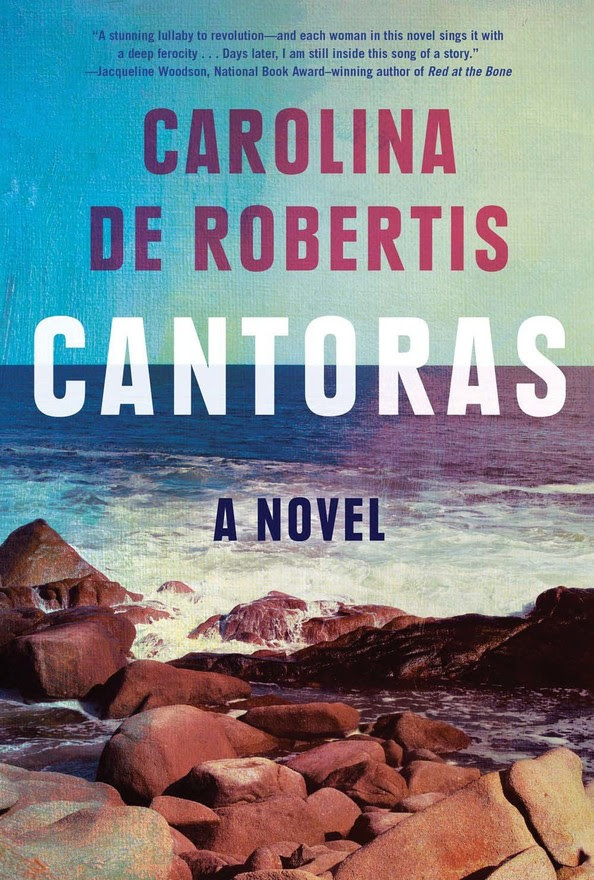 “Cantoras begins in late-1970s Uruguay, a country under the control of a merciless military government. Seeking refuge from the oppressive atmosphere of the capital, five women travel to an isolated coastal village called Cabo Polonio. It soon becomes a haven where the women can live as they wish, to be lovers, friends, confidants—to be free. So liberating is this place that the women decide to pool their money and buy a small home there.
“Cantoras begins in late-1970s Uruguay, a country under the control of a merciless military government. Seeking refuge from the oppressive atmosphere of the capital, five women travel to an isolated coastal village called Cabo Polonio. It soon becomes a haven where the women can live as they wish, to be lovers, friends, confidants—to be free. So liberating is this place that the women decide to pool their money and buy a small home there.
From that first visit to Cabo Polonio, De Robertis unfurls the stories of each of the women’s lives—their hopes, their secret pasts, the suffering they’ve been made to endure by a society in which living openly is more often than not a dangerous pipe dream. The novel covers some 35 years, frequently changing focus from one character to another and yet at all times retaining a powerful sense of intimacy. Each of De Robertis’ central characters is of incredible emotional depth.
Cantoras is at its most powerful when dissecting consequences of desire. Several of the central characters are subjected to horrific violence at the hands of the military dictatorship, but they are also sometimes subjected to violence at the hands of their relatives, people who cannot accept them as they are, who want desperately to “fix” them. In this atmosphere of repression, Romina, one of the five women, thinks, “the path into the forbidden was in fact wide open right in front of you . . . stepping onto it could be a kind of rightness, a vitality more powerful than fear.”
Librarian’s Pick: Inconspicuous Consumption – Tatiana Schlossberg
 “We are inundated daily with reports about the devastating effects climate change is wreaking on the planet. Just when we thought we had heard it all, former New York Times science writer Tatiana Schlossberg brings new issues to the forefront in her debut book, Inconspicuous Consumption: The Environmental Impact You Don’t Know You Have, outlining how our individual habits and the products we use play a significant role in the changing climate.
“We are inundated daily with reports about the devastating effects climate change is wreaking on the planet. Just when we thought we had heard it all, former New York Times science writer Tatiana Schlossberg brings new issues to the forefront in her debut book, Inconspicuous Consumption: The Environmental Impact You Don’t Know You Have, outlining how our individual habits and the products we use play a significant role in the changing climate.
Schlossberg’s investigative reporting skills are a huge asset in explaining how we got to this point, why it matters and what we can do about it. Full disclosure: She does not paint a pretty picture. The detailed scientific evidence and statistics she uncovers are mind-boggling and very scary, particularly the complexity of the consumer impact on the environment and how swiftly it’s altering our world. But she does her best to lighten the mood by mixing these cold, hard facts with witty prose.
She breaks the book down into four main sections of human consumption: technology and the internet, food, fashion and fuel. Most folks have heard about how food and fuel contribute to climate change, but technology and fashion are lesser-known culprits. The reasons behind the environmental footprint of these two industries are eye-opening, such as the enormous quantities of water required to grow cotton to make our jeans and the huge amount of power wasted by devices in off, standby and sleep mode (equivalent to a quarter of all residential energy, as per one study).
As pointed out by Schlossberg, what it boils down to is that many of our daily activities are “much more connected to each other, to global climate change, and to each one of us than we think.” Although she offers suggestions for many of the pressing issues, she admits that our ripple effect on climate change is confusing and that “it’s really hard to know the right thing to do.” As we continue to push the Earth to its limits, Inconspicuous Consumption is a call to action for our future success and survival.”
Librarian’s Pick: A Particular Kind Of Black Man – Tope Folarin
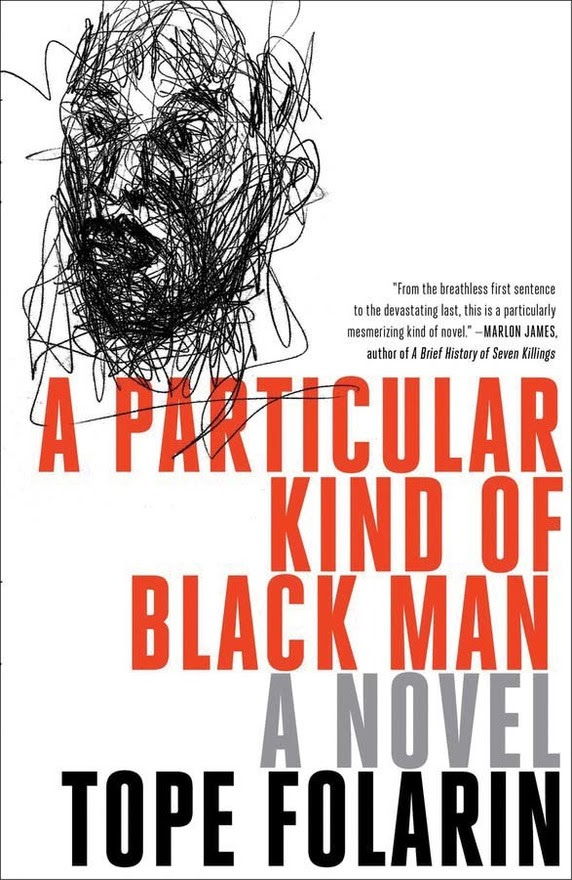 “Tunde is the young son of Nigerian immigrants growing up in a very white Utah in the late 1980s and early ’90s. Despite his college education, Tunde’s father constantly shifts from one job to another, unable to find one that can support his family. When Tunde and his brother are young, their mother begins showing symptoms of schizophrenia. She sometimes hits or pinches Tunde, which he learns to accept as an expression of love. One day, she kidnaps her sons, and they flee to a women’s shelter, disrupting Tunde’s relationship with his father. Eventually, she returns to Nigeria, leaving Tunde, his brother and his father behind.
“Tunde is the young son of Nigerian immigrants growing up in a very white Utah in the late 1980s and early ’90s. Despite his college education, Tunde’s father constantly shifts from one job to another, unable to find one that can support his family. When Tunde and his brother are young, their mother begins showing symptoms of schizophrenia. She sometimes hits or pinches Tunde, which he learns to accept as an expression of love. One day, she kidnaps her sons, and they flee to a women’s shelter, disrupting Tunde’s relationship with his father. Eventually, she returns to Nigeria, leaving Tunde, his brother and his father behind.
Understanding the social structures between black communities and white communities is especially difficult for Tunde, as he grows up surrounded by white people in Utah, some of whom consider him a servant or rub his skin, expecting the black to come off. His misguided attempts to fit in continue through high school and into college, such as when he forces himself to listen to Creed until he starts to like it. He is always an outsider, narrating his surroundings almost like he believes himself to be watching a movie, not watching his life unfold. Still, his admission that he is struggling between two contrasting yet seemingly real sets of memories comes as an interesting surprise and takes the book in a slightly surreal direction.
The title refers to the “kind of black man” who is acceptable to white people. As Tunde slowly unravels the layers of implications of his desire to be this type of man, he begins to understand that his fragmented sense of home must be rectified before he can grow as a person.
While juggling themes of the struggles of immigrant families and the effect of parental mental illness, Folarin plays with structure and pacing, sometimes filling a page with only one poignant line. Once Tunde realizes that he can’t trust his memory, less is more. “And I’m learning that memory isn’t just a catalog of things past; in times of desperation or loss or exile a memory can be a passageway into the future.”
Librarian’s Pick: Inland – Tea Obreht
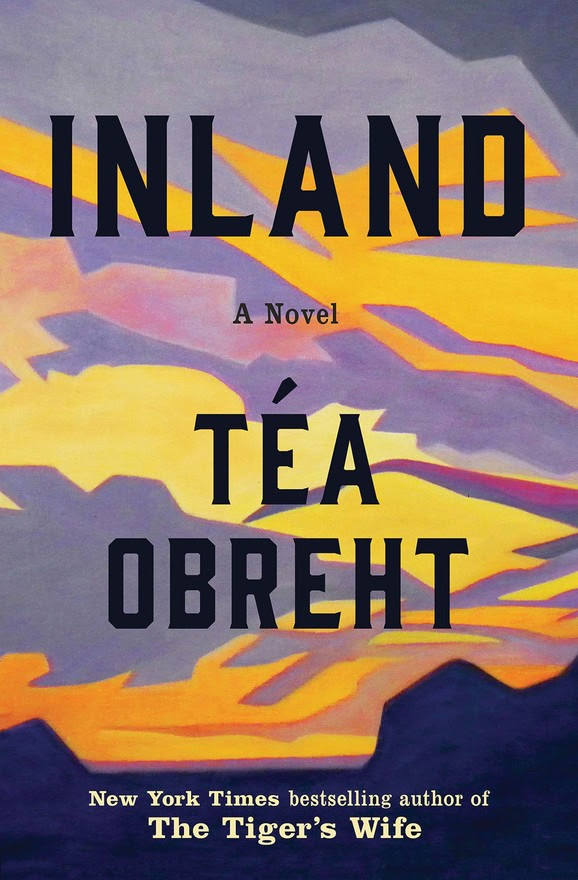
“Wife and mother Nora Lark lives in an unincorporated Arizona town struck by drought. When Inland opens, her husband is out searching for potable water and her two older sons have disappeared, leaving her alone with her youngest son, Toby, and her husband’s 17-year-old cousin, Josie, known for her psychic powers. Both Josie and Toby swear the homestead is being menaced by a mysterious beast, and between the young cousins’ growing hysteria and the lack of drinking water, Nora is at her wit’s end. But how can Nora doubt their claim when she herself carries on a daily conversation with her daughter, Evelyn, who died of heatstroke as a baby?
Outlaw Mattie Lurie has only the dimmest memories of childhood and the Muslim religion in which he was raised before coming to the United States. Surrounded by death for most of his life, Lurie encounters ghosts at every turn. Orphaned young, he did whatever he could to survive and, after killing a man, remains on the run. When Lurie meets up with a traveling caravan of camels and their drivers who are working for the U.S. Army, he feels a personal connection to their leader, Hi Jolly, and throws in his lot with theirs.
Obreht mixes the fictional with the factual in the same effortless way she mixes the magical with the real, the beast with the human. Inland is based, in part, on the true history of the use of camels in the Southwest after the Mexican-American War significantly expanded America’s borders. Though the novel could have benefited from some streamlining, the final chapter in which the paths of Nora and Lurie finally cross is a brilliant prose poem on the interrelationship between the living and the dead, between memory and loss.”
